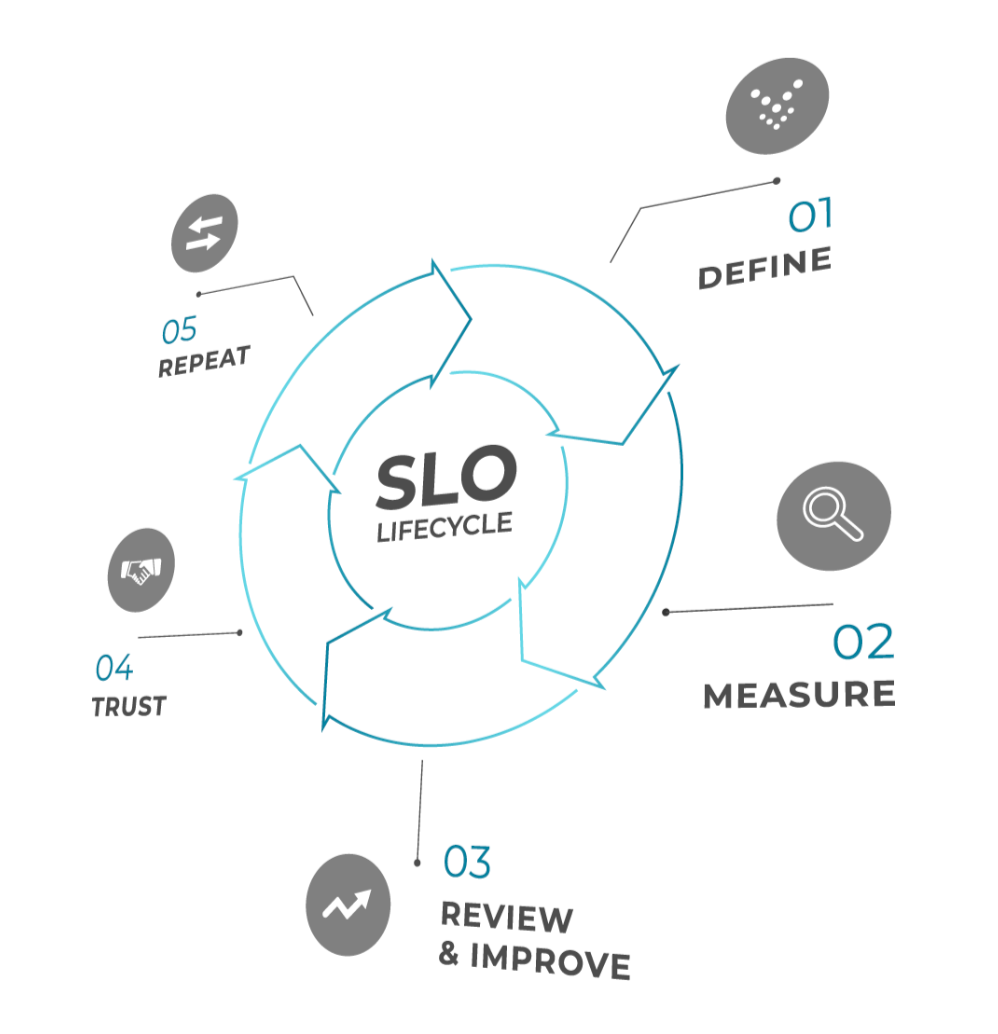More by Erza Zylfijaj:
Getting more from your SLOs with faster Workflows & Smarter Context Can SLOs protect reliability when team experts leave? SLOs Gone Wild: Surviving Service Level Chaos with Advanced Strategies Why your next head of product should obsess over reliability Strategies and Business Benefits of Implementing Service Level Objectives (SLOs) Nobl9 Named Finalist for CRN 2024 Tech Innovator Award in Application Performance and Observability How Two Enterprises Use Nobl9 and AWS to Stay Ahead of SLA Risk Introducing A New Way of Creating, Managing, and Sharing Reports Are You Ready For #SLOconf? Is MTTR Dead? Why SLOs are Revolutionizing Reliability. Building Resilient Systems: Nobl9 Achieves the AWS Resilience Software Competency How to Sell Reliability to a Skeptical Exec? Reliability and SLOs at Scale: Key Lessons from the SRE Pulse Roundtable Standardizing Reliability at Scale with Nobl9 and AWS What marketing to SRE teams has taught us about trust| Author: Erza Zylfijaj
Avg. reading time: 3 minutes
“The speaker buddy system felt like a unique idea, and together we did some pair practicing on the storyline and how things can fit into 10 minutes. It reduces nervousness and encourages us to work together. Please continue encouraging speakers” – Michael Friedrich from Gitlab.
Tired of virtual event planning? Does the idea of coordinating an event with multiple speakers from around the world make you want to tear your hair out? We understand. We just wrapped up SLOconf (the first service level objective conference for site reliability engineers) and empathize with the struggle. Don’t panic! We’ve got an answer for you, and it’s called the Speaker Buddy System.
What’s the Speaker Buddy System?
Inspired by the practice of pairing up kids on field trips to keep them safe and engaged, we came up with the idea to pair our speakers together. We wanted them to feel comfortable relying more on each other and less on the organizers and thought, what better way to do this than by working alongside a peer? This process was not only a good substitute for an in-person experience, but it created a lasting bond between the speakers — something you could only get in this unique virtual space.
”I liked [the speaker buddy system]! It was a welcome excuse to get in-touch before the conference (like a random-coffee), and led to some helpful discussions. One of the challenges with online conferences are the weak feedback cycles.I feel like a buddy system is a step in the right direction and deserves to be explored further!”- Heinrich Hartmann
We also made sure to provide the speakers with a list of deadlines, resources, and information they needed. We communicated clearly and often to set expectations to deliver high-quality talks. But we realized help and deadlines weren’t going to be enough, so we introduced the speaker buddy system to have scalable accountability.
Challenges and Experiments
Getting seven hours of talks created, submitted, edited, and published with only three event staff and two weeks to showtime was a daunting challenge. And we didn’t want to say, “here’s your talk, you have 10 minutes,” because we knew that the resulting videos would not be up to audience standards. Instead, we made sure each speaker was connected with another speaker to help them as audience, critic, editor, and deadline enforcer.
“I don’t have much experience in giving talks, so feedback from someone else helped quite a lot ”- Milan Pzik
For some speakers, this was their first time recording a talk for a conference. They all wanted to know “how does my voice sound?” It seems like a simple question, but if you’ve ever watched yourself speak or dealt with sound tech issues, you know this is crucial to get right. It’s human nature to procrastinate, and rather than getting nag emails from the conference organizers, our buddies made sure they both hit the deadline together. If you and a peer are helping each other, no one feels the pressure or annoyance of being micromanaged.
I’ve been managing speakers at the SRE Meetup for over a year, and had experience with speaker and panel wrangling but, all of a sudden, I went from working with two speakers at a time to over fifty from around the world. Managing them was a challenge we thought we might handle differently as we advanced based on what we learned this time. We did our best to make sure everybody got an excellent fit for a buddy, but there was a learning curve.
How to Buddy System:
- Assign buddies from the very beginning – from when we first accepted the CFPs (Call For Proposals) — don’t wait for them to “self organize”
- Match time zone with similar time zones
- Pair buddies with people who work in the same organization, avoid pairing up folks from competitive companies
- Make sure the expectations, instructions, deadlines, formats, and anything else are clear from the start
“I think the speaker buddy system is an excellent idea! For SLOconf, my buddy was pretty busy but still managed to find some time to review my talk async and give feedback. I’d love to see more of this in the future conferences” Ioannis Georgoulas
The result? Well over a thousand hours of people watching those seven hours of content created in a short period of time. We highly recommend using the speaker buddy system for any conference you’re planning (virtual or in-person). It benefits the speakers as well as the organizers, attendees, and sponsors. It’s a great way to create lasting personal and professional relationships. And by letting speakers work with each other, they end up educating themselves. After all, the best way to learn is by teaching.
Follow Nobl9 on Twitter!
Image credit: Josue Michel on Unsplash

-1.png)


Do you want to add something? Leave a comment